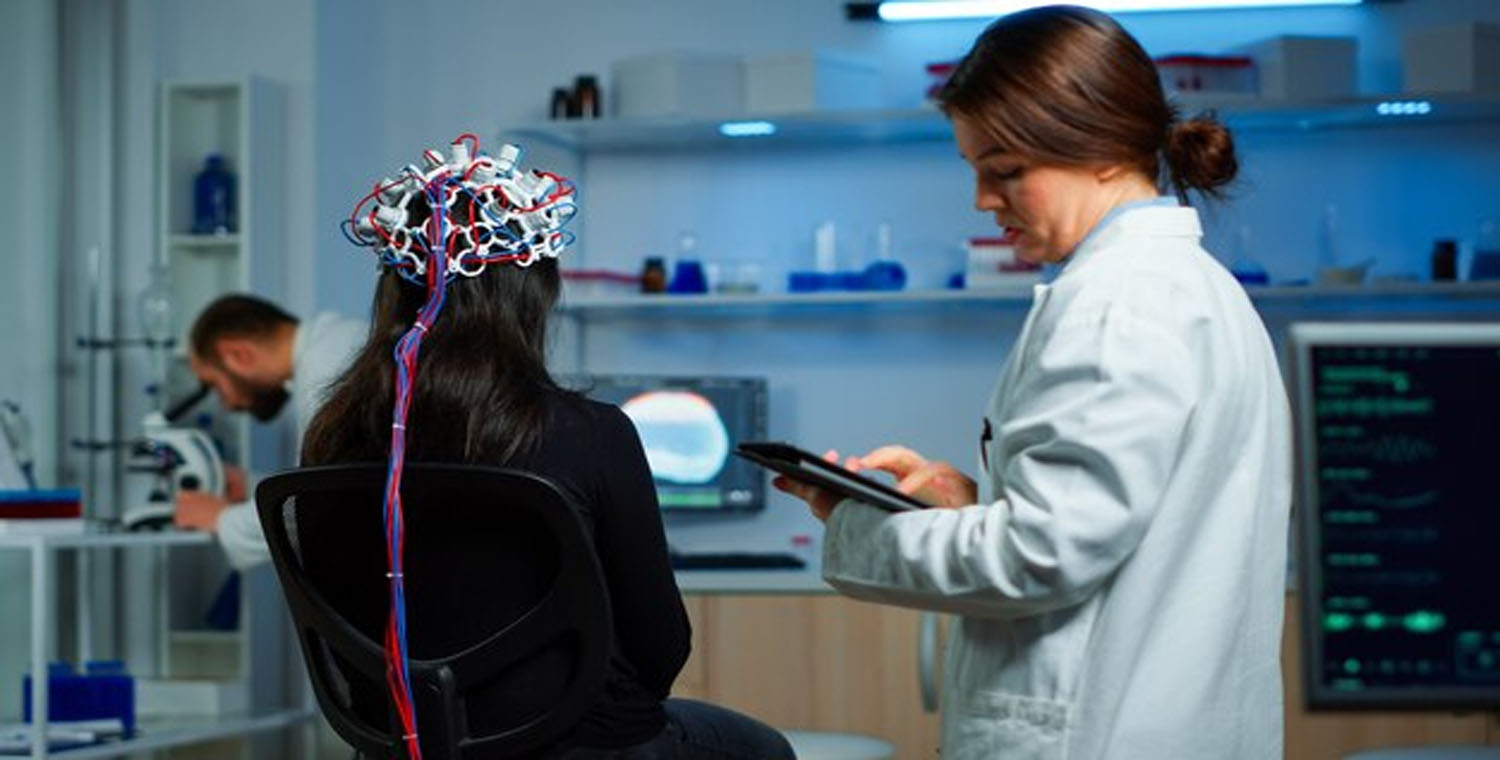Blog
Understanding Fear Scans: Exploring the Intersection of Neuroscience

In an age where mental health awareness is growing, innovative techniques such as “fear scans” are gaining attention. These scans, often conducted using advanced neuroimaging technology, provide valuable insights into the brain’s response to fear and anxiety. This article explores the concept of fear scans, their applications in mental health, the underlying neuroscience, and their potential impact on treatment and understanding of anxiety disorders.
What Are Fear Scans?
Fear scans typically refer to neuroimaging techniques, such as functional Magnetic Resonance Imaging (fMRI) or Positron Emission Tomography (PET), used to visualize brain activity in response to fearful stimuli. By capturing real-time brain activity, researchers can observe how the brain processes fear and anxiety, leading to better understanding and treatment of these conditions.
How Do Fear Scans Work?
- Neuroimaging Technology:
- fMRI: This technique measures brain activity by detecting changes in blood flow. When a specific area of the brain is more active, it requires more oxygen, which is delivered through increased blood flow. fMRI provides a detailed map of brain activity, making it ideal for studying emotional responses.
- PET Scans: PET scans involve injecting a radioactive tracer into the bloodstream, allowing researchers to observe metabolic activity in the brain. This technique can identify areas of the brain that are more or less active during fearful stimuli.
- Stimulus Presentation: During a fear scan, participants may be exposed to various stimuli designed to evoke fear, such as images, sounds, or virtual reality environments. Researchers monitor and record the participants’ brain activity in response to these stimuli.
- Data Analysis: After the scanning session, the collected data is analyzed to identify patterns of brain activity associated with fear responses. This analysis can help researchers understand which brain regions are involved in processing fear and how these processes differ among individuals, especially those with anxiety disorders.
The Neuroscience Behind Fear
Understanding the brain’s response to fear involves exploring several key structures and pathways:
- Amygdala: The amygdala is a small, almond-shaped structure deep within the brain that plays a crucial role in processing emotions, particularly fear. It acts as the brain’s alarm system, quickly assessing threats and triggering the body’s fight-or-flight response.
- Prefrontal Cortex: The prefrontal cortex is responsible for higher-order functions such as decision-making, impulse control, and emotional regulation. It helps modulate the response of the amygdala, allowing individuals to assess situations rationally rather than reacting purely out of fear.
- Hippocampus: The hippocampus is involved in forming and retrieving memories, particularly contextual memories related to fear. It helps distinguish between safe and dangerous environments, playing a vital role in fear conditioning and extinction.
- Hypothalamus: The hypothalamus controls the autonomic nervous system and the release of stress hormones. When the amygdala detects a threat, it signals the hypothalamus to initiate the stress response, preparing the body to react.
Applications of Fear Scans
1. Understanding Anxiety Disorders
Fear scans are instrumental in advancing our understanding of anxiety disorders such as generalized anxiety disorder (GAD), panic disorder, and social anxiety disorder. By studying brain activity in individuals with these conditions, researchers can identify specific neural pathways and dysfunctions associated with excessive fear responses.
2. Developing Targeted Treatments
Insights gained from fear scans can inform the development of targeted therapies. For example, if research indicates that a specific brain region is hyperactive in response to fear stimuli in anxious individuals, treatments such as cognitive-behavioral therapy (CBT) or exposure therapy can be tailored to address these specific patterns.
3. Pharmacological Interventions
Fear scans can also be used to evaluate the effectiveness of medications designed to reduce anxiety. By monitoring changes in brain activity before and after treatment, researchers can assess how well a particular medication alters fear responses and whether it effectively targets the neural pathways involved.
4. Personalized Medicine
As our understanding of brain function improves, fear scans may contribute to the emergence of personalized medicine in mental health. By analyzing an individual’s brain activity patterns, clinicians can develop personalized treatment plans that address their unique fear responses and psychological needs.
The Impact of Fear Scans on Mental Health Treatment
1. Enhancing Exposure Therapy
Exposure therapy is a common treatment for anxiety disorders, where individuals are gradually exposed to feared stimuli in a controlled environment. Fear scans can enhance the efficacy of exposure therapy by identifying specific fear triggers and tailoring the exposure process accordingly. Understanding the neural mechanisms behind fear can lead to more effective interventions.
2. Improving Cognitive Behavioral Therapy
Cognitive-behavioral therapy (CBT) focuses on changing negative thought patterns that contribute to anxiety. Fear scans can help identify which cognitive strategies are most effective for individuals by observing changes in brain activity during therapeutic sessions. This data can inform more targeted and effective CBT approaches.
3. Reducing Stigma
As fear scans provide a biological basis for understanding anxiety disorders, they can help reduce stigma associated with mental health conditions. By demonstrating that fear responses are rooted in neurobiology rather than personal weakness, fear scans can foster greater empathy and support for individuals struggling with anxiety.
Limitations and Ethical Considerations
While fear scans offer valuable insights, several limitations and ethical considerations should be noted:
1. Variability in Responses
Fear responses can vary significantly among individuals. Factors such as genetics, personal experiences, and environmental influences all play a role. As a result, findings from fear scans may not be universally applicable, necessitating caution in generalizing results.
2. Cost and Accessibility
Neuroimaging techniques, including fear scans, can be costly and may not be readily accessible to all individuals. This limitation raises concerns about equitable access to advanced mental health treatments and diagnostic tools.
3. Interpretation of Data
Interpreting the data from fear scans requires expertise in neuroscience and psychology. Misinterpretations could lead to incorrect conclusions about fear responses and subsequent treatment recommendations.
4. Privacy and Consent
The use of neuroimaging raises ethical questions about privacy and informed consent. Participants must be fully informed about how their data will be used and stored, and safeguards should be in place to protect sensitive information.
Future Directions in Fear Scans Research
As technology advances and our understanding of the brain deepens, the future of fear scans holds exciting potential:
1. Integration with Other Technologies
Combining fear scans with other technologies, such as virtual reality (VR), could enhance research and treatment. VR can simulate fear-inducing environments, providing a dynamic platform to study fear responses while participants undergo neuroimaging.
2. Longitudinal Studies
Longitudinal studies utilizing fear scans can provide insights into how fear responses evolve over time. Understanding how brain activity changes with treatment or as individuals age can inform more effective therapeutic approaches.
3. Broader Applications
While fear scans primarily focus on anxiety disorders, their application could expand to other mental health conditions, such as depression or PTSD. Studying fear responses in various contexts could lead to a more comprehensive understanding of mental health.
4. Community-Based Research
Incorporating diverse populations into fear scan research can enhance the applicability of findings across different demographics. Engaging with communities to understand their specific experiences with fear and anxiety can inform more culturally sensitive treatments.
Conclusion
Fear scans represent a groundbreaking advancement in the field of mental health, bridging the gap between neuroscience and psychological treatment. By providing valuable insights into the brain’s response to fear, these scans have the potential to revolutionize our understanding of anxiety disorders and enhance treatment strategies.
As research continues to evolve, fear scans may pave the way for personalized, effective interventions that address the unique needs of individuals struggling with anxiety. With ongoing efforts to improve access, interpret data responsibly, and engage diverse populations, fear scans can contribute to a future where mental health care is more informed, compassionate, and effective.
0x1c8c5b6a
0x1c8c5b6a
Blog
Graduation Wishes for Daughter – Congratulation Messages

Graduation is a significant milestone in a young woman’s life, marking the culmination of years of hard work, dedication, and growth. As a parent, expressing your pride and joy through heartfelt Graduation Wishes is a wonderful way to celebrate this achievement. This article will provide you with a variety of messages, from flirty to humorous, to help you convey your love and congratulations to your daughter on her special day.
Flirty Graduation Wishes Quotes

If you want to add a playful touch to your graduation wishes, consider these flirty quotes:
- “Congratulations, graduate! You’ve officially mastered the art of looking fabulous while studying hard!”
- “You’ve graduated! Now you can focus on being the amazing woman I always knew you’d be. Let’s celebrate!”
- “You’re not just a graduate; you’re a total catch! Can’t wait to see what you do next!”
Short and Sweet Graduation Wishes Messages
Sometimes, a simple message is all you need. Here are some short and sweet graduation wishes for your daughter:
- “Congratulations on your graduation! I’m so proud of you!”
- “You did it! Wishing you all the best in your next adventure!”
- “Your hard work has paid off! Happy graduation!”
Playful and Romantic Graduation Wishes Lines
For those who want to express their affection in a light-hearted way, these lines can do the trick:
- “You’ve graduated, and the world is your oyster! Go out there and shine, my beautiful daughter!”
- “Your future is as bright as your smile! Congratulations on this amazing achievement!”
- “You’ve worked so hard, and now it’s time to celebrate! Let’s make unforgettable memories together!”
Jokes About Graduation Wishes
A little humor can add joy to your graduation greetings. Here are some light-hearted jokes to share:
- “Why did the graduate bring a ladder to the ceremony? Because they wanted to reach new heights!”
- “What did the graduate say to their diploma? ‘You complete me!’”
- “Why did the student eat their homework? Because the teacher said it was a piece of cake!”
Graduation Wishes Messages to Make Her Smile
If you want to bring a smile to your daughter’s face, consider these cheerful messages:
- “Congratulations, my dear! Your hard work has paid off, and I couldn’t be prouder!”
- “You’ve achieved something incredible! Here’s to new beginnings and endless possibilities!”
- “Your graduation is just the beginning of a beautiful journey. I can’t wait to see where it takes you!”
How to Personalize Graduation Wishes Messages
Personalizing your graduation wishes can make them even more special. Here’s how:
Understanding Her Personality
Consider your daughter’s personality when crafting your message. Is she serious, playful, or romantic? Tailor your message to fit her style.
Incorporating Inside Jokes or Memories
If you have shared experiences or inside jokes, including them can create a sense of connection and warmth in your message.
Contact Allreviewed Team for Personalized Graduation Wishes Messages
If you’re looking for more tailored options, the Allreviewed team can help you craft the perfect graduation message that reflects your relationship and sentiments.
Who is the Allreviewed Team?
The Allreviewed team specializes in creating personalized messages for various occasions, including graduations. They understand the importance of heartfelt communication and can help you find the right words to express your pride and love.
How Allreviewed Helps You Craft Perfect Messages
With their expertise in message crafting, the Allreviewed team can provide you with unique ideas, templates, and personalized suggestions to ensure your graduation wishes are memorable and heartfelt.
FAQs About Graduation Wishes Messages
What makes a Graduation Wishes message special?
A special graduation message resonates with the recipient, reflects genuine pride, and acknowledges the significance of their achievement.
Can flirty messages be romantic too?
Absolutely! Flirty messages can carry a romantic undertone, especially when they express affection and playfulness.
Are jokes appropriate in a Graduation Wishes message?
Jokes can be a great way to lighten the mood, but ensure they are appropriate for the recipient and align with their sense of humor.
How do I keep Graduation Wishes messages fresh and unique?
To keep your messages fresh, consider personal anecdotes, shared memories, or even quotes that resonate with your daughter’s journey.
Where can I find more personalized Graduation Wishes quotes?
You can explore various online resources, including websites like Allreviewed, which offer a collection of graduation messages and quotes tailored to different situations. Additionally, social media platforms and forums can provide inspiration from others who have shared their experiences and sentiments.
-

 Blog1 year ago
Blog1 year agoFree Public Domain Images for Commercial Use
-

 Blog1 year ago
Blog1 year agoLove Shayari in English: An In-Depth Guide
-

 Blog1 year ago
Blog1 year ago“Unveiling Vergando: Navigating the Dynamics of Modern SEO”
-

 Blog1 year ago
Blog1 year ago“Unleashing Envy: How to Make Spencer Bradley Jealous”
-

 Blog1 year ago
Blog1 year agoUnlocking the Power of Opera GX Twitter: A Comprehensive Guide
-

 Blog1 year ago
Blog1 year agoStages: Navigating Life’s Phases
-

 Blog1 year ago
Blog1 year agoArrow Tattoos: A Comprehensive Guide
-

 Blog11 months ago
Blog11 months agoA Comprehensive Guide to Sveston Watches: Style, Features, and Buying Tips
